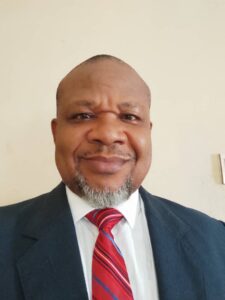Dr Emeka Ononamadu, former INEC’s Resident Electoral Commissioner (REC) in Enugu State, has called for the strengthening of eight positive areas within INEC reforms leading to the 2023 General Elections.
Ononamadu, who is a Democracy and Development Consultant to Citizens Centre for Integrated Development and Social Right (CCIDESOR), made the call in a media interaction in Enugu on Friday.
According to him, the eight positives included successful online pre-registration of voters through the Continuous Voters Registration (CVR).
“Two, use of INEC Voter Enrollment Device (IVED) during the voter enrollment online; and thirdly, use of Bimodal Voter Accreditation System (BVAS), which replaces the card reader and worked excellently during the elections.
“Interestingly those that were declared winners and others challenging the declaration in courts are relying on the BVAS despite criticisms.
“Fourth is the positive use of the INEC Election Result Viewing Portal (IReV); and the fifth, the electoral reforms as pushed by INEC and Civil Society Organisations (CSOs).
“The sixth is the expansion of voters’ access by creation of additional polling units all over the country; and seventh, the reduction of numbers of political parties from over 89 to 18.
“Finally, is the logistics tracking of INEC voting materials within real-time,” he said.
The former REC said that the introduction of these positives were major milestones because they had to a large extent protected the younger or smaller parties.
He noted that the spread of election victory, particularly at the National Assembly level, is interesting due to the recent reforms and technological innovations introduced.
Ononamadu, who noted that July 6 is exactly one year that he left INEC after serving the country for five years, said that some people noted that it was getting better, and “I concurred because things should keep getting better”.
“I was part of the process. There is no other intention of these INEC reforms other than to improve election outcome.
“Using the Appreciative Inquiry method is to look at the positives of those reforms during the 2023 general election and commence discussion on areas to consolidate as well as areas to improve upon.
“If we approach the development of our election system, only from the small prism of challenges, Nigeria will be running round the cycles without meaningful improvement of the system that on its own has generated enough milestones for immediate consolidation.
“For instance, it was the new system that disappeared the bogus figures that were usually churned out as results from states referred to as swing states,” he said.
Ononamadu assured that after the review of the 2023 election by INEC with stakeholders is made public, he would make public his “strong reflection” on 2023 election outcomes, the challenges imposed by the electoral law that was used and many more.
“I looked back with optimism; while encouraging all citizens to continue to be firm in electing those who will rule them at all levels,” he added. (NAN)


